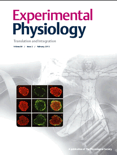
EXPERIMENTAL PHYSIOLOGY
metrics 2024
Pioneering discoveries in the realms of Nutrition and Physiology.
Introduction
EXPERIMENTAL PHYSIOLOGY, published by WILEY, stands as a vital resource in the fields of Nutrition and Dietetics and Physiology, providing high-quality, peer-reviewed research since its inception in 1990. With an impressive categorization into the Q2 quartile in these domains, the journal emphasizes the integration of experimental and clinical findings, making significant contributions to our understanding of physiological processes and nutritional impacts on health. The journal operates within a competitive landscape, ranked significantly in Scopus, showcasing its relevance to both the medical community and nutritional sciences, as evidenced by its rankings in Nursing, Medicine, and Biochemistry. Though it is not currently open access, the journal remains an indispensable tool for researchers, professionals, and students seeking to deepen their knowledge and stay updated on cutting-edge research. With a publication window extending to 2024, EXPERIMENTAL PHYSIOLOGY continues to influence the academic discourse and promote advancements in its respective fields.
Metrics 2024
 0.77
0.77 2.60
2.60 2.80
2.80 114
114Metrics History
Rank 2024
Scopus
IF (Web Of Science)
JCI (Web Of Science)
Quartile History
Similar Journals
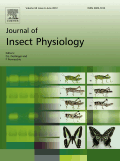
JOURNAL OF INSECT PHYSIOLOGY
Illuminating the Wonders of Insect FunctionThe Journal of Insect Physiology, an esteemed publication by Pergamon-Elsevier Science Ltd, stands at the forefront of the study of insect biology and physiology. Established in 1957 and set in the United Kingdom, this journal has consistently contributed to advancing our understanding of the intricate physiological processes of insects throughout its converged years ending in 2024. With an impressive impact factor that solidifies its reputation, it ranks in the 1st quartile for Insect Science and the 2nd quartile for Physiology as per the 2023 metrics. The journal's Scopus rankings also reflect its influence, boasting a notable position in both Agricultural and Biological Sciences and Biochemistry, Genetics, and Molecular Biology. Although currently not open access, it provides researchers and professionals with invaluable insights and groundbreaking research essential for the field. With its comprehensive scope, the Journal of Insect Physiology is dedicated to fostering scientific dialogue and innovation, making it an indispensable resource for scholars and students alike.

PHYSIOLOGICAL AND BIOCHEMICAL ZOOLOGY
Illuminating the Interplay of Life's Biological SystemsPhysiological and Biochemical Zoology is a distinguished peer-reviewed journal published by University of Chicago Press, focusing on the interrelated fields of animal physiology, biochemistry, and zoology. With a strong commitment to advancing scientific understanding, this journal serves as a vital resource for researchers, professionals, and students alike, providing a platform for the latest findings and advancements in the field. Ranking in the top quartile (Q1) in Animal Science and Zoology as of 2023, and showcasing a substantial convergence of historical data from 1999 to 2023, its impact in the academic community is underscored by its engagement with high-quality research. While it also appears in the third quartile for Biochemistry and Physiology, the journal successfully integrates these disciplines, reflecting the complexity of biological systems. Available for reading via various access options, this journal is essential for anyone seeking to deepen their knowledge or contribute to the field of Zoological sciences.

JOURNAL OF PHYSIOLOGY-LONDON
Unveiling the Science of Life and MovementJOURNAL OF PHYSIOLOGY-LONDON, published by WILEY, stands as a prestigious beacon in the fields of Physiology and Sports Science. Established in 1878, this journal has a rich history of disseminating crucial research findings and advancing scientific knowledge, continuing its impact into the present day with an anticipated convergence in 2024. Recognized for its excellence, it ranks in the Q1 category for both Physiology and Sports Science in 2023, cementing its position within the top echelons of academic publications. With a Scopus rank of #26 out of 193 in the Biochemistry, Genetics and Molecular Biology _ Physiology category, the journal boasts an impressive 86th percentile, reflecting its high-quality contributions to the scientific community. Although not open access, its extensive archive and reputation ensure that it remains a vital resource for researchers, professionals, and students eager to stay at the forefront of physiological science. For those looking to deepen their understanding of physiological mechanisms and their applications, the JOURNAL OF PHYSIOLOGY-LONDON is an indispensable resource.

RESPIRATORY PHYSIOLOGY & NEUROBIOLOGY
Advancing Insights in Respiratory and Neural DynamicsRESPIRATORY PHYSIOLOGY & NEUROBIOLOGY, published by Elsevier, is a prominent journal in the fields of respiratory medicine, neurobiology, and physiology. With an ISSN of 1569-9048 and E-ISSN 1878-1519, this journal serves as an essential platform for disseminating high-quality original research and reviews that explore the intricate relationships between respiratory function and neural controls. Located in the Netherlands, it boasts an impressive standing within its field, categorically placed in the Q3 quartile for Neuroscience and Physiology and Q2 for Pulmonary and Respiratory Medicine according to the 2023 metrics. With a Scopus rank of #58 in Pulmonary and Respiratory Medicine and a robust impact factor indicative of its academic influence, the journal aims to foster advancement in understanding the physiological and neurobiological aspects of respiration. Although the journal is not open access, its content is vital for researchers, professionals, and students eager to contribute to the expanding knowledge base in these critical scientific domains.
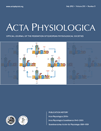
Acta Physiologica
Your Gateway to Cutting-Edge Physiological DiscoveriesActa Physiologica is a premier, peer-reviewed journal published by WILEY, dedicated to the dissemination of high-quality research across the field of physiology. With an impressive impact factor reflective of its Q1 category ranking in Physiology for 2023, this journal is a vital resource for researchers, professionals, and students alike, seeking to explore the complexities of biological systems. The journal is indexed with a commendable Scopus rank of #18 out of 193 in its category, placing it within the top 10% of its field, which underscores its influence and citation frequency within the academic community. Acta Physiologica publishes a variety of articles that address fundamental physiological concepts, innovative methodologies, and cross-disciplinary research. With its open access options, the journal ensures that cutting-edge knowledge is readily accessible, fostering an environment of collaboration and advancement in the study of physiology. Spanning from 2006 to 2024, the journal continues to be at the forefront of physiological research and education, encouraging the global sharing of knowledge through its comprehensive content.
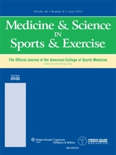
MEDICINE & SCIENCE IN SPORTS & EXERCISE
Advancing the frontiers of sports medicine and exercise science.MEDICINE & SCIENCE IN SPORTS & EXERCISE is a premier journal published by Lippincott Williams & Wilkins, dedicated to advancing the fields of sports medicine, exercise physiology, orthopedics, and physical therapy. With a significant history dating back to 1969, this journal provides a critical platform for disseminating cutting-edge research and clinical insights that shape contemporary sports science. Recognized for its rigorous peer-review standards, it boasts an impressive impact factor and ranks in the top quartile (Q1) across pivotal categories including Orthopedics and Sports Medicine, Physical Therapy, and Rehabilitation. Researchers and healthcare professionals will find it an invaluable resource for the latest findings and trends that inform practice and enhance athletic performance. The journal is available in both print and digital formats, ensuring accessibility for its audience worldwide. By fostering a rich dialogue among scientists, practitioners, and students, MEDICINE & SCIENCE IN SPORTS & EXERCISE solidifies its importance in the evolving landscape of sports health and exercise research.
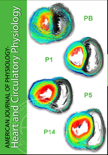
AMERICAN JOURNAL OF PHYSIOLOGY-HEART AND CIRCULATORY PHYSIOLOGY
Transforming cardiovascular research into clinical practice.AMERICAN JOURNAL OF PHYSIOLOGY-HEART AND CIRCULATORY PHYSIOLOGY, published by the American Physiological Society, is a premier journal dedicated to advancing the understanding of cardiovascular physiology. With an ISSN of 0363-6135 and an E-ISSN of 1522-1539, this esteemed journal has been a vital resource since its inception in 1977, and continues to publish cutting-edge research that shapes the fields of cardiology and physiology. Recognized as a Q1 journal in multiple categories, it ranks impressively within the top tier of its fields, including a notable 18th percentile rank in Physiology (medical). The journal’s impact factor and extensive reach in the academic community affirm its significance in promoting innovative studies and insights. While it does not offer open access options, the journal remains accessible through institutional subscriptions, making it an essential tool for researchers, professionals, and students alike, who are keen to stay abreast of the latest developments in heart and circulatory physiology. For further information, the journal is based in the United States at 6120 Executive Blvd, Suite 600, Rockville, MD 20852. As a cornerstone of cardiovascular research, it invites contributions that push the boundaries of knowledge and enhance clinical practice.

Physiology International
Unlocking Insights for a Healthier TomorrowPhysiology International is a distinguished journal dedicated to the exploration and advancement of knowledge in the fields of physiology, sports medicine, and rehabilitation. Published by AKADEMIAI KIADO ZRT in Hungary, this open-access journal has been a reliable source of scholarly articles since its inception in 2016, providing valuable insights into both complementary and alternative medicine, as well as traditional medical practices. With an impact factor that situates it in Q2 and Q3 quartiles across related disciplines, including Physical Therapy, Sports Therapy and Rehabilitation and Orthopedics and Sports Medicine, it represents a vital resource for professionals and researchers looking to stay abreast of the latest findings and methodologies. The journal is indexed on Scopus, signifying its credibility and relevance in the medical community. As it continues to develop through 2024, Physiology International invites contributions that challenge existing paradigms and foster innovative approaches to health and wellness, making it an essential platform for advancing the conversation in medical physiology and its applications.

JOURNAL OF PHYSIOLOGY AND BIOCHEMISTRY
Connecting Theoretical Insights with Practical ApplicationsJOURNAL OF PHYSIOLOGY AND BIOCHEMISTRY, published by Springer in the Netherlands, serves as a pivotal platform for disseminating high-quality research within the fields of physiology, biochemistry, and related biomedical sciences. With an impressive impact factor reflected in its categorization as Q2 in Biochemistry and Q1 in Medicine (miscellaneous), this journal fosters a vibrant community of scholars dedicated to advancing knowledge and innovation. The journal’s broad scope encompasses a wide range of topics from cellular mechanisms to systemic physiology, making it relevant for both theoretical and applied sciences. Researchers and practitioners are encouraged to utilize the available Open Access options to reach a wider audience. The journal’s continuous contribution to the scientific dialogue since its inception in 1996 positions it as a key resource for professionals and students alike, facilitating the exploration of cutting-edge topics and collaborative research opportunities.

Journal of Exercise Science & Fitness
Elevating fitness through rigorous scientific inquiry.Journal of Exercise Science & Fitness is a premier Open Access journal published by Elsevier Singapore Pte Ltd, dedicated to advancing the field of exercise science through rigorous research and comprehensive reviews. Since its inception in 2005, the journal has made significant contributions to various domains including Pharmaceutical Science, Physical Therapy, and Sports Science, achieving a distinguished Q1 ranking in its respective categories as of 2023. With a commitment to disseminating knowledge without barriers, it has embraced an Open Access model since 2009, ensuring that cutting-edge findings are accessible to all researchers, practitioners, and students worldwide. Its high visibility is reflected in its Scopus rankings, placing it among the top-tier journals in the health professions and public health sectors. This journal serves as a critical platform for the latest developments in exercise science, promoting evidence-based practices that can enhance health and performance, making it an invaluable resource for those at the forefront of this dynamic field.